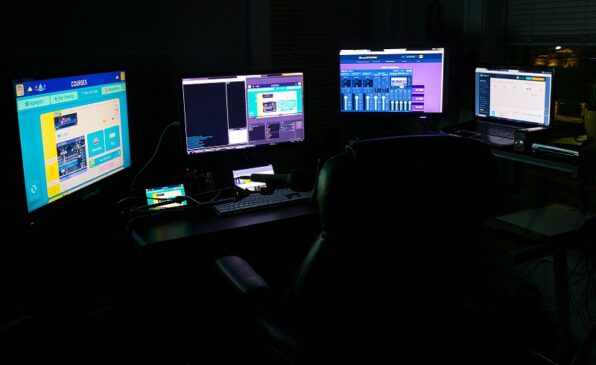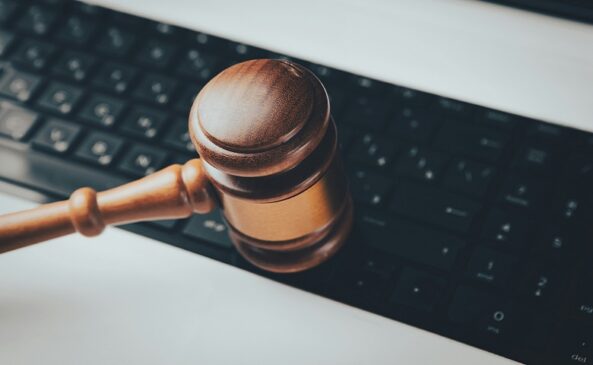Stellar Uses of GPS Tracking Device in Various Industries
TechsPlace | Today, the era of technology, one that is hyped— The Global Positioning System (GPS) technology is ubiquitous. Whether it is vehicles all around during the drive giving a push to the automotive industry, smartphones, ships, and boats influencing the marine industry, agriculture. A lot more industries equip GPS tracking with efficient devices. There’s a solid reason so many businesses use GPS tracking devices. Eventually, these devices increase their bottom line by cutting costs and enhancing customer satisfaction along with country-level security and much more. This means the GPS devices have massive potential for business growth in every way.
Over 98% of GPS technology is giving a quick ROI in various industries, as it resulted in integral success in business growth. It is, of course, the technology itself is the only key. The responses showed that customers need to be happy with the companies providing their GPS tracking devices as they want quality support for software and hardware.
Overpowering Thumbs-Up for GPS Technology
GPS has revolutionized the daily lives of people living around the world. GPS devices provide services from satellite tracking that becomes useful in a variety of commercial and personal applications. Thanks to the advent of technology, the importance of GPS technology is increasing rapidly. The GPS tracking device tracking system thus found vast commercial applications for taxi companies and cab services, among others, and in other industries. Most of the companies are slowly and steadily understanding the importance of GPS technology for achieving greater efficiency. When business professionals understand the ability of GPS as of how it can intensify their business or services, they are able to take their business to the next level of proficiency.
GPS Navigation vs. GPS Tracking
GPS has dramatically decreased the need for road maps over the years. It utilizes positioning, navigation, and timing (PNT) services to determine several locations. The position determines location via coordinates, and navigation generates the current position and applies corrections to divert towards the desired position. Lastly, timing allows for acquiring a precise time to reach the desired location. Further, GPS is used to keep transit vehicles on schedule and helps drivers to reach their destination at the fastest time. By doing this, it is able to frequently update drivers with traffic alerts and also used to track arrival and departure times.
On the other hand, a GPS tracking system is mainly used to monitor without possessing any navigation capabilities. Instead, it follows the location of not only vehicles but can also be used to track children, elderly, and pets about their current location and more. GPS device trackers usually require a monthly service to get advanced with its features. A GPS tracking device is also proficient in generating status showcasing how fast the vehicle is going, where it has been as well as for how long. People often find themselves using a GPS device to give themselves peace of mind, especially when it comes to their loved ones.
Pros of GPS Devices and Tracking System
- Makes Navigation Easier
By using GPS devices, navigation becomes easier. These devices thus provide relevant details such as distance and shortest route to reach the desired location. Centered on GPS maps, the device operator can see and travel, according to the terrain features with details o routes, obstacles, timing, congestion, and noting landmarks provided by the satellite.
- Multiple Functions
The GPS devices offer various functions as carrying barometric altimeters, electronic compass, watches, and calendars is a hassle and are conventional ways of tracking routes. Thus, in most GPS devices, these functions are provided in advanced methods for accurately navigating places, making the journey remarkable and enjoyable.
- Helps in Finding Location
GPS technology provides the simplest way of getting to any location as desired. Anyone can easily establish current coordinates and share contacts by installing an accurate GPS device. These devices make it easier to find the location via maps. The devices can easily be installed in vehicles using, which can be handy at the same time.
- Offers Multiple Options
As GPS has so many varieties of map data and routes, the devices can give access to a lot of information instantly without much delay. Some GPS devices include digital cameras and weather radios in the kitty.
Establishing GPS Technology in Various Industries With Benefits
The interactive and reliable technologies available through GPS today have positively been used in various industries such as automotive, military, IoT, telecommunications, marine, Aviation, and more. In this guest post, how GPS technology has shaped these industries in the way they are functioning today and witnessing considerable growth.
IoT Industry
GPS technology plays a significant role in the tracking of the fleet’ daily operation in IoT. IoT devices that are connected to the main computer for detecting data. Most of the GPS devices enabled fleets on the roads in present days tend to use IoT as part of their day to day work and logistics.
There are several different types of IoT enabled GPS devices. Presenting some of the few examples of IoT sensors that are being used in GPS devices.
Level Sensors: Let us take shipping products that might lead to issues if not loaded and stored correctly. In this case, IoT enabled GPS devices with the help of sensors can help make sure the products arrive safely and at the right time. Such devices protect the shipper against fraud or from any claims of damage due to leveling issues.
Accelerometer sensors –IoT sensors in GPS devices help monitor the speed and acceleration of fleet vehicles under check for its positioning. This means a safer set of drivers, better insurance rates, and happier customers in the long run.
Automotive Industry
We all are aware of the fact that GPS uses satellites to deliver position information to the GPS devices to things like smartwatches and the car’s navigation system. But not many people know the details about how intellectual, sophisticated, and advanced today’s satellite-based navigation systems genuinely are. However, in the early days of the automobile industry, car driving from point A to point B proved to be a bit tricky. Roads were in their infancy stage, as highways were still decades away with little road signs and markings, which resulted in anyone getting lost. But now, for ten years, GPS devices evolved with the technology of GPS that helps roads to make ways in a very effective way.
Cars have had extensive ability to communicate with the internet. In fact, the most eminent car model Tesla on the road had its driverless capabilities via a software update. However, cars, in today’s time, are equipped with advanced GPS device trackers. The GPS tracking technology, though exciting, is nothing new, but getting advanced which is making it more and more demanding and useful.
Generally, there are mainly three ways to be guided in a car via GPS devices:
- A map display for the specific region or area
- A screen with the list of future turns
- A guidance display turn-by-turn with pop-ups about the following turn
In many modern vehicles, such displays are assimilated to show drivers with all necessary features in a single screen, which makes navigating less distracting. For an average user of GPR device in the car, the navigation in it differs from free maps in their smartphones with the help of GPS receiver, route instructions, a loudspeaker for voice guidance, calculation of best routes, distances, as well as time.
With all this, in recent times, advanced guidance on navigation in modern cars can function with the help of the online maps and traffic data, as it is also available on GPS devices after the smartphone. Yet, compared to the in-vehicle navigation, a smartphone fails in providing real-time traffic information without the internet connection, whereas GPS device navigation in cars utilizes Traffic Message Channel (TMC) technology.
Military Industry
GPS technology in the military industry is used to service land, sea and airborne navigation, geographical exploration, vehicle location systems, search and rescue operations, surveying, cartography and geodesy, aerial refueling, and rendezvous and a wide range of additional applications.
A piece of accurate and up-to-date information on the location of the enemy and own forces is one of the essential information a military commander seeks. In recent times fast-paced electronic battlefield, if any information is circulated timely, this can act as a significant force multiplier. The dawn of loss of communication has led to the development of several technologies, like GPS, which find extensive application both in military and civilian fields. Military forces all over the world are using GPS for miscellaneous applications both during wartime and peacetime. These include targeting, navigation, rescue operation, guidance, and facility management.
In a recent event, as war clouds were approaching over west Asia, the US-led forces showcased weapon systems, which rely heavily upon GPS technology with the help of installation of devices for their accuracy and lethality. The Navigation Satellite Timing And Ranging (NAVSTAR) GPS was earlier developed by the US Department of Defense (DoD) as a global navigational and positioning resource both for military and civilian uses. The system worked on the basis of a constellation of twenty-four satellites in six orbits that acted as reference points for receivers on the ground.
The military applications of GPS devices revolve around main activities that are itemized as:
- Navigation
- Tracking
- Bomb and Missile guidance
- Facility Management
Marine Industry
Marine GPS technology and the systems have come along away since it first arrived in the market. Each year the GPS technology marine navigation systems keep getting better and better, giving many advanced features and much more power!
Marine GPS is intended explicitly for the marine environment and is actively recommended for the need for increased safety. The GPS tracking devices bring to navigators of the open waters. In fact, in the recent sailing courses are now including the use of GPS systems within their training courses. With the use of satellites, navigation is done to determine the speed and direction of the ship, which is shown on the screen of the GPS device. With a Chartplotter device, it also allows for the course of the ship to be plotted electronically.
For proper navigation, the marine industry has different types of devices in their use that are described as—
- Handheld
- Chartplotters
- Computer Connected To GPS
GPS Tracking Devices Market
A prominent research company, Market Research Future, expressed its study over the global market of GPS tracking devices. It can through with statistics showing that the market has a positive growth over the years and will be gaining worth USD$ ~2.53 Billion by the year 2023. The rate of the increase is calculated to be ~11.9% of CAGR, and it will be capitalizing between the years of 2017 and 2023.
The study further indicates that the GPS Tracking Device market is propelling due to factors such as demand for GPS tracker devices for being easily installed at affordable costs. Apart from this, the low price makes it easy for small and medium-sized businesses to install these systems and improve their efficiency. In fact, various governments are also actively setting up GPS devices across transport systems to add utilities to public services. Geographically, North America has been the foremost region with the highest market share. In this region, over two million people have been using GPS Personal Emergency Response Systems with the growing demand for personal safety. GPS tracking devices are also used to monitor anti-poaching patrol cars and track their location for private as well as commercial purposes.
This article is contributed by guest author on techsplace.com.





